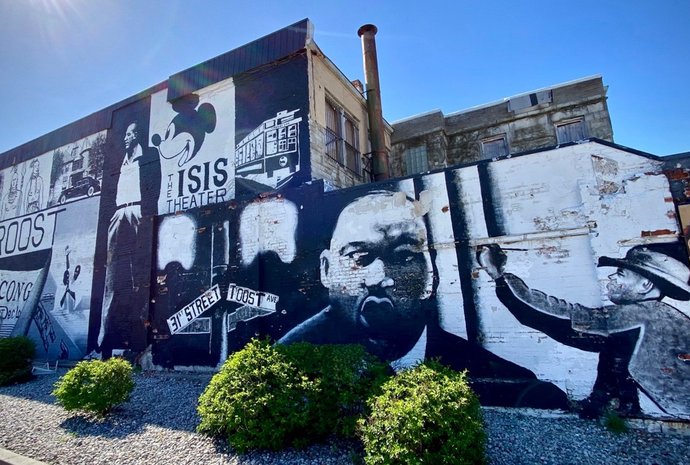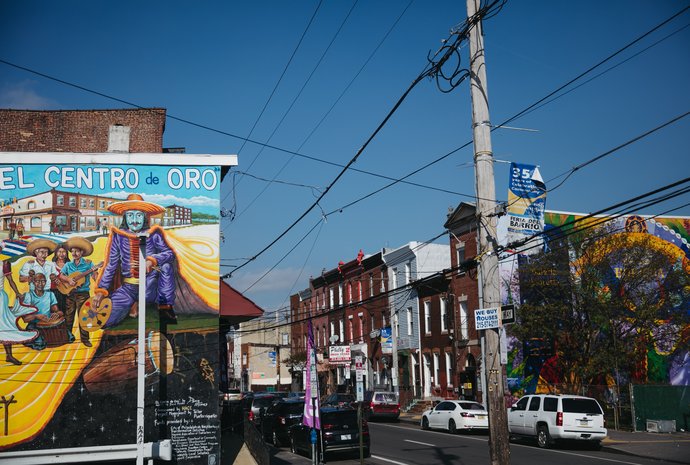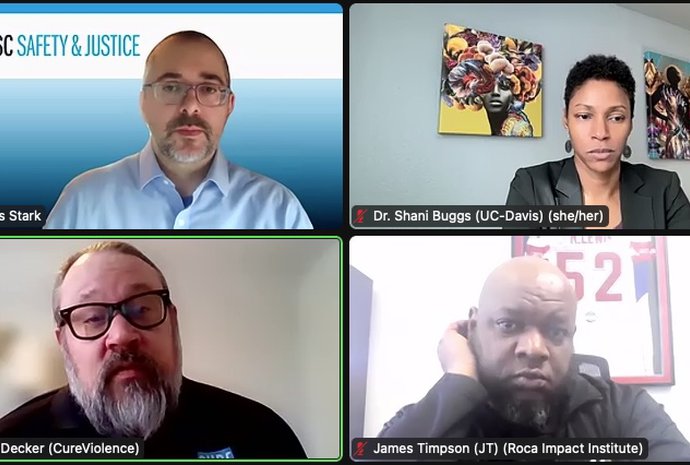Safety is a fundamental human need and a basic feature of all flourishing communities. Freedom from crime and the fear of crime allows people to come together in public spaces, patronize local businesses, and engage with civic institutions, building a sense of belonging that in turn reinforces safety.
Places where residents are routinely harmed and harassed by crime tend to be places of concentrated disadvantage—high-poverty, racially segregated, areas where people lack access to quality housing and education, physical and mental health care, and living-wage jobs.
Compounding this inequity, our criminal justice system has a track record of destabilizing families and communities through cycles of arrest and incarceration, along with police violence against Black people in particular.
Our Mission
LISC Safety & Justice empowers locally led coalitions to collectively address crime, fear of crime, and over-policing in their communities.
Through our core place-based model, we support community leaders, residents, and other stakeholders to design and implement strategies that create healthier and safer environments, reduce and prevent violence, promote alternatives to arrest and incarceration, and support people re-entering communities after incarceration. We provide direct technical assistance, training, and funding to help community partners carry out evidence-driven solutions that increase safety without criminalizing residents in Black and brown communities. We lift up best practices from our network to serve practitioners and decision makers in all communities.
Our Vision
We imagine a world where all residents feel safe, respected, and empowered in the places they live, work, learn and play.
We envision a society where poverty is not criminalized, where neighbors are able to ensure the safety of their own communities, and where opportunities are abundant and accessible.
For this vision to become a reality, residents must have the resources they need to live in dignity, the tools to self-manage conflict, the respect of state institutions, and the assurance that when the social contract is broken, justice will be swift and truly fair.
Our Values and Practices
We pursue equity and inclusion: Deliberate effort is required to overcome structural racism; our work to do so must include the expertise of those with lived experience.
We center community and place: Our local solutions are anchored in a specific place and depend on the participation of empowered, connected residents.
We build partnerships: Residents, nonprofits, businesses, and law enforcement all bring vital strengths and it is important for them to be at the table.
We respect evidence: Data and documented experience allow us to identify and scale strategies that work and rigorous evaluation keeps efforts on track.
We work toward comprehensive revitalization: Safety and justice are interdependent with all elements of community well-being. We weave solutions into the fabric of holistic change efforts.
We cultivate sustainability: Change takes time. Initiatives that invest in building up the community’s people and institutions will catalyze opportunity for years to come.

Our policy priorities
Our ability to show results in local communities and neighborhoods has relied heavily on leveraging federal resources to scale, replicate, and evaluate promising approaches. Federal investments are an essential component of any intersection of places, people, and systems, and are the cornerstone of safety and justice agendas. Learn about our Policy Priorities here.


